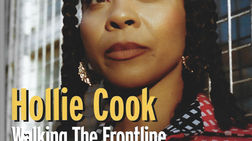The Last Poets - Understand What Black Is
- May 10, 2018
- 3 min read
Updated: Dec 18, 2020
Understand What Black Is was released to coincide with the Last Poets' 50th anniversary. It was co-producer Prince Fatty who first played me tracks from it and from I heard the lines, "America is a terrorist," I was completely hooked. Thanks to Poets Abiodun Oyewole and Umar Bin Hassan for sharing their time, thoughts and memories, and to Tony Thorpe, Lisa Meads and Rich Elson for their input in making these liner notes happen. I owe you.































Comments